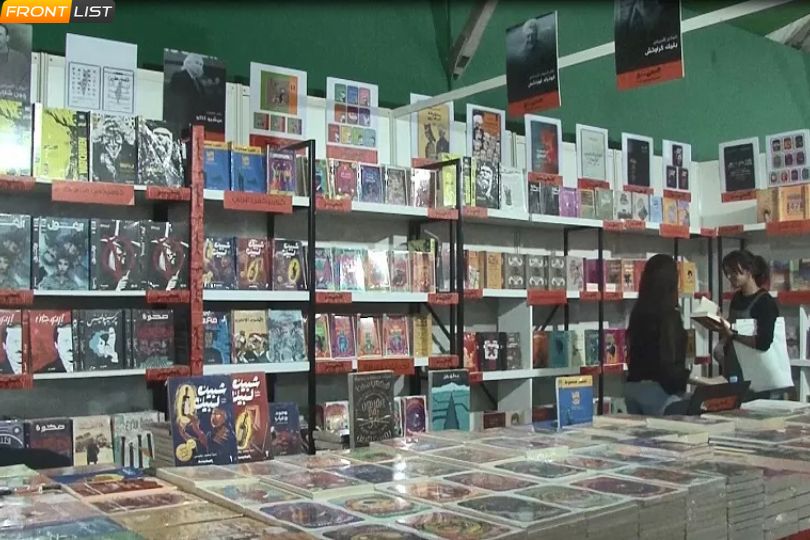Interview With Ajay Mago, Publisher, Om Books International
on Jun 02, 2022
.jpg)
Armed with an MBA from UCLA and a home-induced flair for the book trade, Ajay Mago, Publisher, Om Books International, started the Publishing Division of an over-50-year-old book retailing outfit, Om Book Shop, in 1997, alongside a strategically planned expansion on the retail front. Ajay was instrumental in shaping Om Books International, which is today known for its wide range of books that it publishes with the finest authors from India and abroad. Due to his extraordinary business skills, OBI has been able to establish an international distribution network in the UK, the US, the Middle East, Sri Lanka, Malaysia, Singapore, Thailand, Germany, France, and Spain. While under his guidance, the retail venture, Om Book Shop, has made its presence felt in Delhi, Gurgaon, NOIDA, Mumbai, and Bengaluru, with other innovative trade-related moves on the anvil, Ajay wishes to further accelerate the growth and expand the retail venture all across.
Frontlist: Being one of the largest English-language trade publishers, have you ever considered applying the same level of significance to other languages?
Ajay: All languages are significant to us. Our efforts towards this consist of constant efforts to explore language rights sales of the books we publish in English. And this includes not just Indian languages but also foreign ones. The dynamics of local-language publishing are quite different, with distribution and pricing a major challenge. Also, good translators and editors are difficult to source.
Frontlist: Which genre has gained prominence over the last few years, and how has it influenced the reading habits of people?
Ajay: It’s very difficult to say which genre works best when. Certain genres have a continued level of audience engagement, for example, business books and motivational self-help books. People tend to look for inspiration from stories from real life. Mythologies have been popular, but I think everyone is doing too much of this. It is reaching saturation. And the quality of commercial mass-market fiction is too mediocre, though there are a lot of people who read these. I think the reading public is not too keen on good, literary works; they prefer simplistic books in the MBS space—or maybe publishing houses are not investing enough in this segment.
Frontlist: Many workshops are being organised for writing these days, but none for improving reading skills. Could you please discuss some ways to bring out the joy of reading among the younger generation?
Ajay: I am not even sure if reading skills can be improved through workshops. Even these writing workshops are a fad. Reading and writing are intensely private exercises. How can a group of people get together and develop reading habits? We live in an era where social media and marketing exercises dictate everything. It is for teachers and parents to introduce the habit of reading to youngsters. Like writing improves with practice, the habit of reading too has to be developed through constant reinforcement. No workshops help.
Frontlist: The evolution of digital media has broadened the availability of content for consumers. How does it affect the growth of physical books?
Ajay: The attention span of people has shortened. Anything over a screen page is likely to be scrolled past. But the true book lover will always go for the physical book. Also, content on digital media is too scattered and unreliable. So, physical books do provide that sense of being forever. People still love that experience of browsing books at book shops—nothing can replicate that feeling of smelling a new book and holding it in your hands.
Frontlist: What approaches should be taken by parents to develop reading habits in their children at an early age?
Ajay: Introduce them to books early on. Keep them away from the mobile and TV. Read aloud to them every night in the early years. Give them a sense of the world of books. Make them want to read, not to learn or prepare for exams, but to savour the experience of reading.
Frontlist: Edtech has changed the way people learn. Which way is more effective to encourage reading among young people: physical books or e-books? Please share your experience.
Ajay: The constraints of space have made ebooks popular, but nothing beats actual physical learning. The pandemic has shown us that. The issues teachers and students have faced with online classes and teaching has shown that nothing quite matches the actual physical experience of face-to-face learning with physical books. Technology can be an aid, but it cannot replace the physical experience.



.jpg)






.jpg)

.jpg)

.jpg)
.jpg)
.jpg)
.jpg)










Sorry! No comment found for this post.